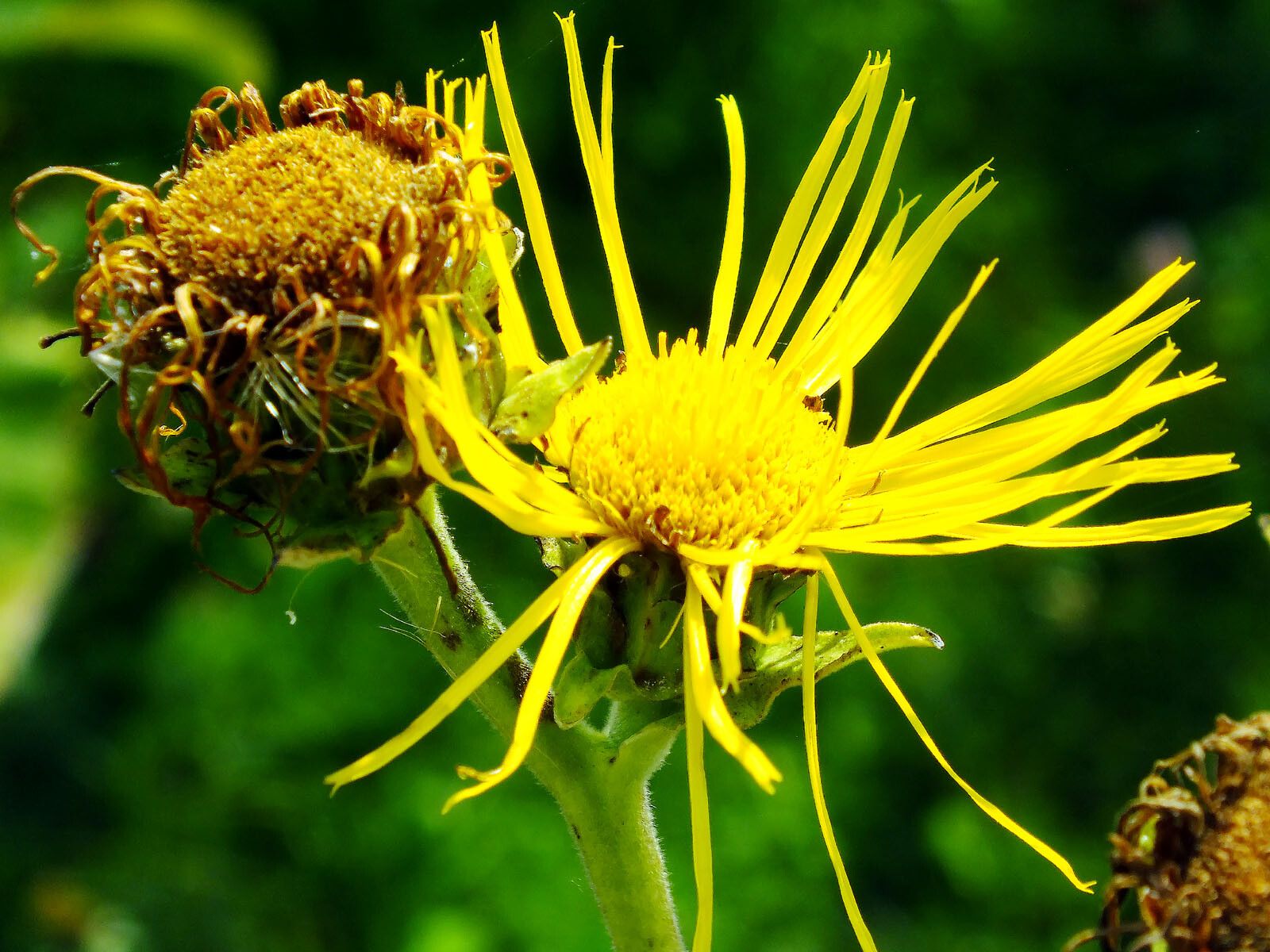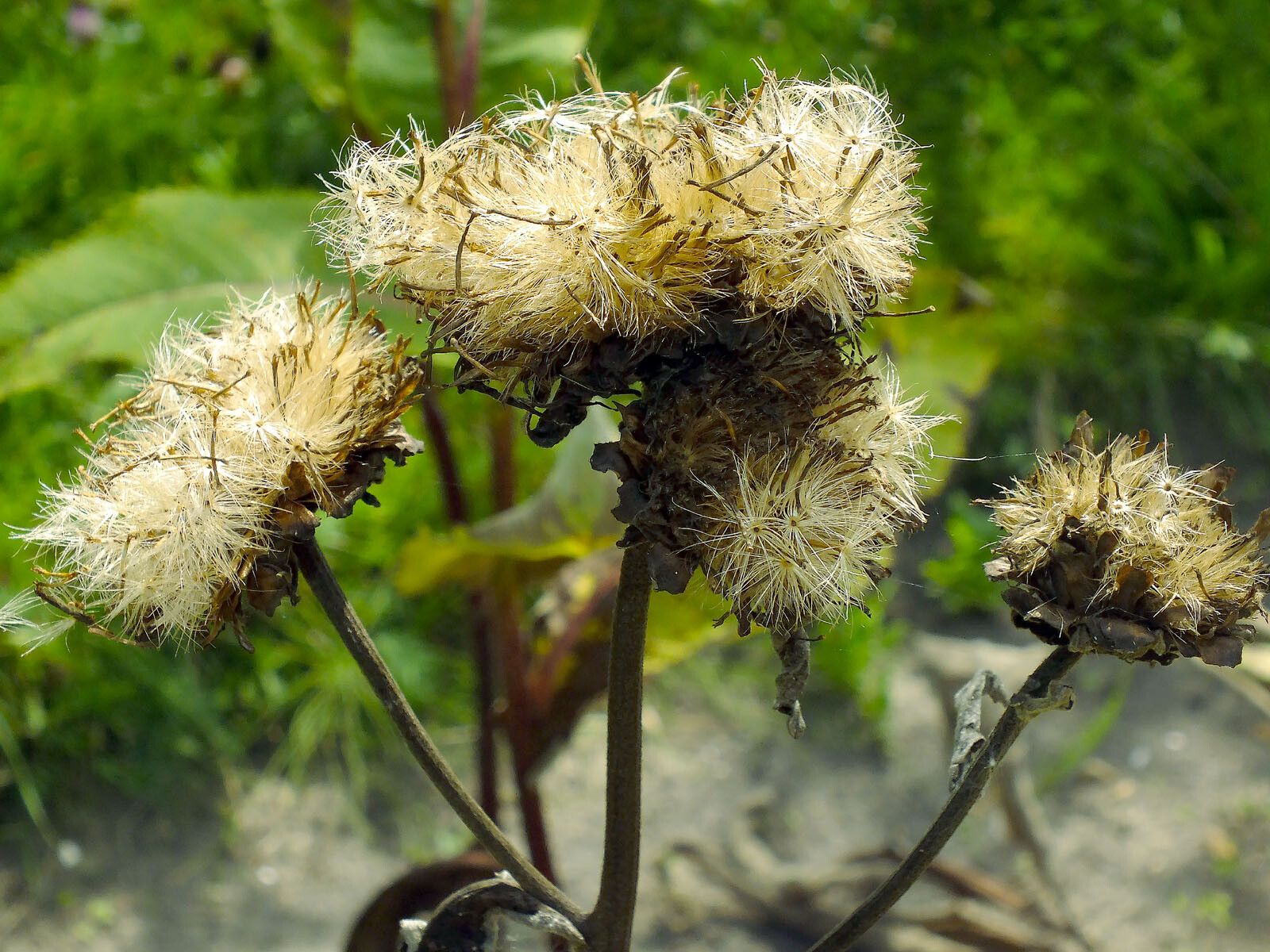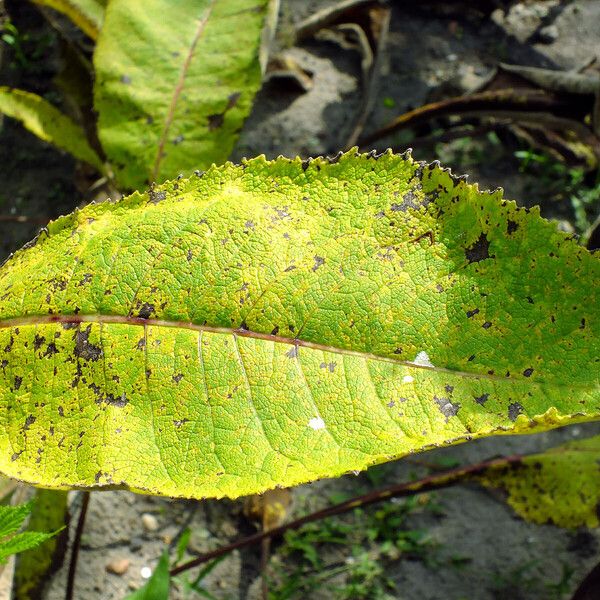Observation
Flora
משפחה
Determination
Proposed determination
Most probable name (Submitted name)
100%Confidence score
Suggest another determination
You don’t agree with the suggested species but don’t have another suggestion
Comments
Additional data
Date created
18 אוג׳ 2024
Last revised
18 אוג׳ 2024
Łódź, Botanical Garden
Synonyms: 'Corvisartia helenium', 'Aster helenium".
It is native to Eurasia from Spain to Xinjiang province in western China, and naturalized in parts of North America.
Ornamental plant.
Edible plant - leaves cooked, rather bitter and aromatic, they were used as a potherb by the ancient Romans but are rarely used at present;
roots candied and eaten as a sweetmeat.
Herbal plant - a very safe herb to use, it is suitable for the old and the young and especially useful when the patient is debilitated; it cleanses toxins from the body, stimulating the immune and digestive systems and treating bacterial and fungal infections; the roots are alterative, anthelmintic, antiseptic, astringent, bitter, cholagogue, demulcent, diaphoretic, diuretic, mildly expectorant, gently stimulant, stomachic, tonic; an extract of the plant is a powerful antiseptic and bactericide, particularly effective against the organism that causes TB; the plant is sometimes recommended as an external wash for skin inflammations and varicose ulcers, but has been known to cause allergic reactions.
Usable plant - a blue dye is obtained from the bruised and macerated root mixed with ashes and whortle erries (Vaccinium myrtillus; the roots yield up to 2% of a camphor-scented essential oil, this is used as a flavouring and medicinally.
Shared in
Groups (16)





